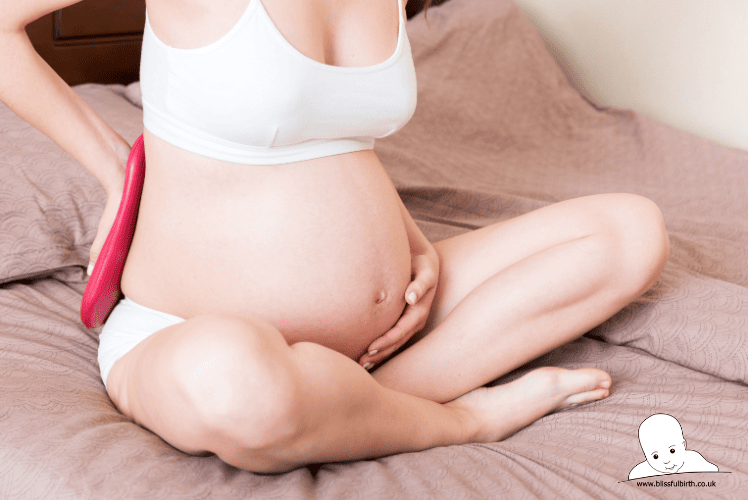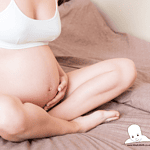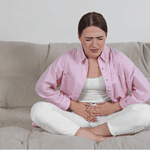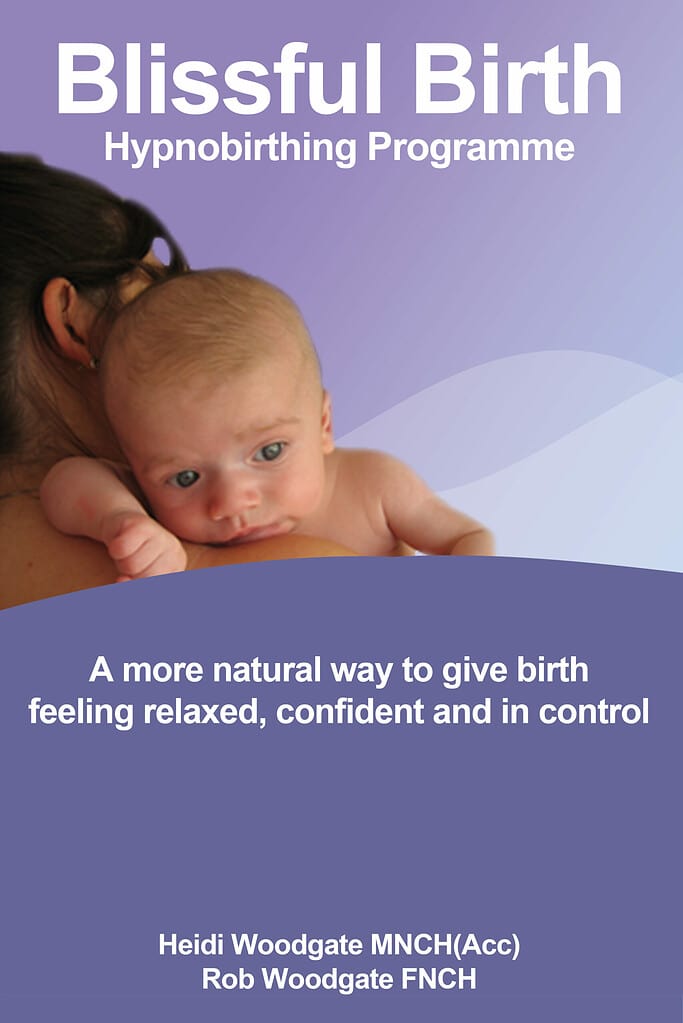Pregnancy brings about a myriad of changes to a woman’s body. From the joy of feeling the baby’s first movements to the discomfort of swollen feet and backaches, it’s a journey of highs and lows.
Among the various remedies pregnant women consider for relief, heating pads often emerge as a popular choice. But is it safe to use a heating pad while pregnant?

Table of Contents
- Quick Answer
- Is It Safe to Use A Heat Pad In Pregnancy?
- Body Temperature and Pregnancy
- Can You Use a Heating Pad on Your Stomach While Pregnant?
- The Healing Power of Heating Pads
- Potential Drawbacks and Concerns
- Best Practices for Heating Pad Usage
- Alternatives To Heat Pads
- Expert Insights on Heating Pads in Pregnancy
- Conclusion
Quick Answer
Using a heating pad while pregnant is generally considered safe, as long as it doesn’t raise the body’s core temperature excessively.
It’s therefore recommended to use them in moderation, avoid placing them directly on the belly, and always monitor how you feel. If in doubt, consult with a healthcare professional.
Is It Safe to Use A Heat Pad In Pregnancy?
The general consensus among healthcare professionals is that heating pads can be a safe and effective tool for alleviating some of the discomforts of pregnancy.
The warmth from the pad can soothe sore muscles, ease back pain, and provide comfort.
However, there are some essential guidelines to follow:
Avoid High Temperatures
The primary concern with using heating pads during pregnancy is the potential for overheating. It’s crucial to ensure that the pad doesn’t raise your core body temperature above 102°F (38.9°C).
Elevated body temperatures, especially during the first trimester, can pose risks to the developing fetus.
Limit Duration
While it’s tempting to bask in the warmth for extended periods, it’s advisable to use the heating pad in short intervals.
A common recommendation is to apply it for 20 minutes, then take a break.
Monitor Your Feelings
Always listen to your body. If you start feeling too warm, sweaty, or uncomfortable, it’s time to remove the heating pad.
Consult with a Healthcare Professional
If you have any concerns or underlying health conditions, it’s always best to consult with a doctor or midwife before using a heating pad.
In summary, while heating pads can offer relief, it’s essential to use them wisely and safely to ensure the well-being of both the mother and the baby.
Body Temperature and Pregnancy
The human body is a marvel of biological engineering, especially when it comes to maintaining a stable internal environment. This stability, known as homeostasis, is crucial for the body’s proper functioning.
One of the vital parameters the body regulates is temperature. During pregnancy, this regulation becomes even more critical due to the developing fetus.
Why is Body Temperature Important?
The enzymes and biochemical processes within our cells operate best at specific temperatures. A significant deviation, especially an increase, can disrupt these processes.
For pregnant women, the concern is twofold: the well-being of the mother and the developing baby.
Risks of Elevated Body Temperature in Pregnancy
Studies have shown that a sustained high body temperature, especially during the first trimester, can increase the risk of certain birth defects.
Neural tube defects, where the brain or spinal cord doesn’t develop correctly, are among the concerns linked to elevated body temperatures early in pregnancy.
How Heating Pads Influence Body Temperature
While heating pads can provide localized warmth, there’s a misconception that they can drastically raise core body temperature.
In reality, the localized heat from a pad is unlikely to cause a significant rise in core temperature, especially when used correctly.
However, prolonged exposure or using a heating pad on a large area of the body can potentially influence core temperature, which is why moderation is key.
Heat Pads vs Hot Tubs and Saunas
Unlike heating pads, hot tubs and saunas expose the entire body to elevated temperatures.
This widespread exposure can quickly raise the body’s core temperature, making them riskier for pregnant women.
Can You Use a Heating Pad on Your Stomach While Pregnant?
The abdomen, particularly the stomach area, is a focal point during pregnancy. It’s where you feel the baby’s kicks, and it’s also the region that undergoes the most significant transformation.
Given its importance, many pregnant women are understandably cautious about what they expose their bellies to, including heat from heating pads.
Localized Heat vs. Core Temperature
Using a heating pad on the stomach provides localized heat, which means only a specific area of the body is warmed. This is different from activities like taking a hot bath, which can raise the body’s core temperature.
When used for short durations and on a low setting, a heating pad is unlikely to significantly increase your core temperature.
Benefits of Using a Heating Pad on the Stomach
Many women experience abdominal discomfort, round ligament pain, and other muscle-related discomforts during pregnancy. A heating pad can help relax these muscles and provide temporary relief.
It’s essential, however, to ensure the heat is kept low, the heat is applied for a short period of time, and to always have a layer, like a cloth, between the pad and the skin.
Precautions
- Never use the heating pad on the highest setting. Always start with a lower temperature and adjust as needed.
- Limit the use to short intervals, ideally no more than 20 minutes at a time.
- If you feel any discomfort, remove the heating pad immediately.
- Always have a layer, like a cloth, between the pad and the skin
- Always consult with a healthcare professional if you’re unsure or have underlying health concerns.
In conclusion, while it’s generally safe to use a heating pad on your stomach during pregnancy, it’s crucial to do so with caution and awareness. The goal is to achieve relief without compromising safety.
The Healing Power of Heating Pads
Muscle Relaxation
The warmth from heating pads can help relax tense muscles, providing relief from spasms and aches.
Increased Blood Flow
Heat promotes blood flow, which can aid in healing and reduce inflammation in sore areas.
Flexibility
Gentle heat can increase the flexibility of tendons and ligaments, reducing the risk of strains.
Pain Relief
Heat can act as a natural pain reliever by targeting pain receptors and reducing the transmission of pain signals to the brain.
Potential Drawbacks and Concerns
Risk of Burns
If not used correctly, heating pads can cause burns, especially if placed directly on the skin or used at high temperatures.
Overheating
Prolonged use can potentially raise the body’s core temperature, which is a concern during pregnancy.
Dependency
While heating pads are a great tool, it’s essential not to become overly reliant on them. It’s always a good idea to explore other pain relief methods and consult with a healthcare professional.
Best Practices for Heating Pad Usage
Using a heating pad during pregnancy can be a source of great relief, but it’s essential to ensure that it’s done safely. Here are some best practices to consider when turning to a heating pad for comfort:
Choose the Right Heating Pad
Opt for a heating pad with adjustable temperature settings. This allows you to start at a low temperature and adjust as needed.
Some pads also come with auto shut-off features, adding an extra layer of safety.
Placement Matters
While it’s generally safe to place a heating pad on sore muscles, avoid placing it directly on your belly. Instead, focus on areas like the lower back or legs. Always ensure there’s a cloth or barrier between your skin and the pad to prevent burns.
Duration is Key
Limit the use of the heating pad to short intervals. A common recommendation is 20 minutes on, followed by a break. This prevents overheating and reduces the risk of burns.
Avoid Sleeping with a Heating Pad
It’s easy to drift off to sleep when you’re comfortable, but it’s crucial not to sleep with a heating pad on. This can lead to prolonged exposure and potential burns.
Listen to Your Body
If at any point you feel too hot, uncomfortable, or experience any pain, remove the heating pad immediately.
Maintenance and Care
Regularly inspect your heating pad for any signs of wear or damage. If the wires are exposed or the fabric is torn, it’s time to replace it.
Consult with a Healthcare Professional
If you have any doubts or concerns, or if you have an underlying health condition, always consult with a doctor or midwife before using a heating pad.
By following these best practices, you can ensure that you’re using the heating pad safely and effectively, maximizing the benefits while minimizing potential risks.
Alternatives To Heat Pads
Physical Exercises and Stretching
Gentle exercises and stretching routines can be incredibly beneficial during pregnancy. They not only help alleviate muscle tension and pain but also improve flexibility and blood circulation. Prenatal yoga and Pilates are popular choices, offering routines tailored for pregnant women.
Warm Baths
A warm bath can be a soothing alternative to heating pads. The water provides even heat distribution, helping to relax tense muscles. However, it’s essential to ensure the water isn’t too hot and to limit the duration to prevent overheating.
Over-the-Counter Medications
While many medications are off-limits during pregnancy, some over-the-counter pain relievers might be safe in moderation. It’s crucial to consult with a healthcare professional before taking any medication.
Complementary Therapies
Treatments like hypnobirthing, acupuncture, chiropractic care, and prenatal massage have been found beneficial for many pregnant women. These therapies can provide pain relief, improve blood circulation, and promote overall well-being.
Cold Compresses
For some types of pain, especially inflammation-related, a cold compress can be more effective than heat. Cold packs can reduce swelling and numb the area, providing relief.
By exploring these alternatives, pregnant women can find multiple avenues for relief, ensuring they have a range of options to suit their unique needs and preferences.
Expert Insights on Heating Pads in Pregnancy
Medical Community’s Stance
The medical community generally considers the use of heating pads during pregnancy as safe, provided they are used correctly. The primary concern is the potential for overheating, which can be harmful during the early stages of pregnancy. However, with proper precautions, the risks are minimal.
Research Findings
Recent studies on the use of heating pads during pregnancy have largely focused on the potential risks of elevated body temperature.
While localized heat from a heating pad is unlikely to cause a significant rise in core temperature, prolonged exposure or using a heating pad on a large area of the body can potentially influence it. The consensus is that moderation and awareness are key.
Recommendations from Obstetricians
Many obstetricians recommend heating pads as a non-pharmacological intervention for pain relief during pregnancy. The advice is to use them on a low to medium setting, avoid placing them directly on the belly, and limit usage to short intervals.
Feedback from Pregnant Women
Anecdotal evidence from pregnant women suggests that heating pads can be a lifesaver, especially during the later stages of pregnancy when back pain and muscle aches become more pronounced. The comfort and relief they provide, especially when other pain relief options are limited, make them a popular choice.
Conclusion
Pregnancy is a time of joy and challenges. While heating pads offer comfort, it’s essential to use them wisely, prioritizing both mother and baby’s safety.
Exploring alternatives, from exercises to massages, can also provide relief. Ultimately, making informed, well-researched decisions is the key to a healthy pregnancy journey




